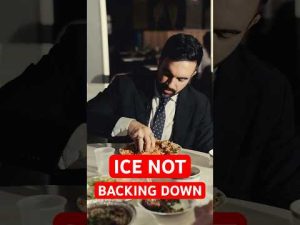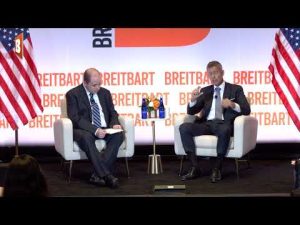The mainstream media loves a sob story, and this week they plastered a clip of a Department of Defense employee who drove more than an hour to a food bank and tearfully said she hadn’t bought groceries since the shutdown began. The TV-ready phrase “I’m starving” made headlines and social feeds explode, but reality rarely fits the sound bite—this is heartbreaking for the individual, but it is also an opportunity for honest conversation about dependency, priorities, and who’s really responsible.
What actually triggered the immediate scramble was a USDA directive sent to state SNAP agencies telling them to “hold” their November issuance files amid the funding lapse, meaning electronic EBT deposits that millions depend on were put on pause while bureaucrats juggle legal and accounting gymnastics. That memo—sent during a funding stalemate—created the administrative pathway for missed benefits and handed the evening-news cameras their next dramatic vignette.
Make no mistake: SNAP is massive, covering roughly 40–42 million Americans, and a pause in federal funding would ripple through communities and food banks across the country. The scale of the program means any political stalemate quickly turns into real hardship for families who rely on this monthly lifeline, and the uncertainty is the worst part for people trying to plan a grocery budget.
Local charities and food banks have been strained to the breaking point as lines form and supplies dwindle, from Tennessee to Arizona — a predictable consequence when Washington plays politics with people’s meals. Communities are stepping up, but volunteers and pantry shelves can’t replace a stable federal commitment; the real scandal is that this is happening at all when the law and contingency funds exist to prevent it.
Still, the television narrative often omits inconvenient context: government programs this large create dependence, and American households deserve incentives to work and provide for their families rather than long-term reliance on monthly top-ups. Conservatives aren’t heartless — we support fast, local charity and reforms that get people back to work — but we also won’t apologize for calling out a liberal media that exaggerates a single clip to shield the political actors who let this shutdown drag on.
Republican critics and conservative groups have been blunt: the ongoing shutdown is a political choice, and Democrats’ demands and negotiating positions have contributed to keeping the government closed while millions wait for benefits. If you want a scapegoat, look to the politicians who refused common-sense compromises and forced ordinary Americans to feel the pain of failure in Washington.
Hardworking Americans shouldn’t be pawns in a political stunt. The immediate priority is to pressure state and federal leaders to use every lawful avenue to get food assistance flowing again, while voters remember this episode next election cycle and insist on leaders who put country before headlines. In the meantime, neighbors should help neighbors, church pantries should stay open, and the media should stop treating every struggling person as a prop for a partisan narrative.







